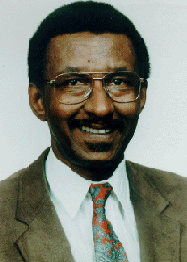

|
|
|
Walter Williams Black Confederates
Dr. Lewis Steiner, a Union Sanitary Commission employee who lived through
the Confederate occupation of Frederick, Maryland said, "Most of the
Negroes ... were manifestly an integral portion of the Southern Confederacy
Army." Erwin L. Jordan's book "Black Confederates and Afro-Yankees
in Civil War Virginia" cites eyewitness accounts of the Antietam campaign
of "armed blacks in rebel columns bearing rifles, sabers, and knives and
carrying knapsacks and haversacks." After the Battle of Seven Pines in
June 1862, Union soldiers said that "two black Confederate regiments not
only fought but showed no mercy to the Yankee dead or wounded whom they
mutilated, murdered and robbed." In April 1861, a Petersburg, Virginia newspaper proposed "three
cheers for the patriotic free Negroes of Lynchburg" after 70 blacks
offered "to act in whatever capacity may be assigned to them" in
defense of Virginia. Erwin L. Jordan cites one case where a captured group of
white slave owners and blacks were offered freedom if they would take an oath
of allegiance to the United States. One free black indignantly replied,
"I can't take no such oaf as dat. I'm a secesh nigger." A slave in
the group upon learning that his master refused to take the oath said,
"I can't take no oath dat Massa won't take." A second slave said,
"I ain't going out here on no dishonorable terms." One of the slave
owners took the oath but his slave, who didn't take the oath, returning to
Virginia under a flag of truce, expressed disgust at his master's disloyalty
saying, "Massa had no principles." Horace Greeley, in pointing out some differences between the two warring
armies said, "For more than two years, Negroes have been extensively
employed in belligerent operations by the Confederacy. They have been
embodied and drilled as rebel soldiers and had paraded with white troops at a
time when this would not have been tolerated in the armies of the
Union." General Nathan Bedford Forrest had both slaves and freemen
serving in units under his command. After the war, General Forrest said of
the black men who served under him "(T)hese boys stayed with me ... and
better Confederates did not live." It was not just Southern generals who owned slaves but northern generals
owned them as well. General Ulysses Grant's slaves had to await the
Thirteenth Amendment for freedom. When asked why he didn't free his slaves
earlier, General Grant said, "Good help is so hard to come by these
days." These are but a few examples of the important role that blacks served,
both as slaves and freemen in the Confederacy during the War Between the
States. The flap over the Confederate flag is not quite as simple as the nation's
race experts make it. They want us to believe the flag is a symbol of racism.
Yes, racists have used the Confederate flag, but racists have also used the
Bible and the U.S. flag. Should we get rid of the Bible and lower the U.S.
flag? Black civil rights activists and their white liberal supporters who're
attacking the Confederate flag have committed a deep, despicable dishonor to
our patriotic black ancestors who marched, fought and died to protect their
homeland from what they saw as Northern aggression. They don't deserve the |